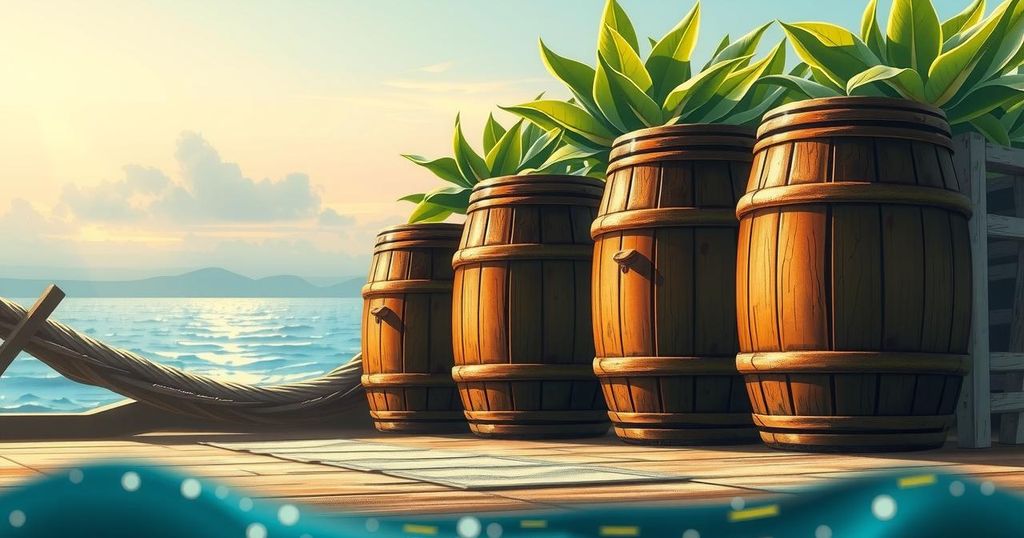Vietnam’s Fish Sauce Tradition Faces Challenges from Climate Change and Overfishing

The Bui family’s traditional fish sauce production in Vietnam is threatened by climate change and overfishing, impacting the availability of anchovies essential to this centuries-old craft. While Phu strives to uphold his family’s legacy, rising costs and ecological challenges pose significant risks to the future of fish sauce in Vietnam’s culinary landscape.
Bui Van Phong chose to preserve his family’s legacy of fish sauce production in Vietnam, embracing a tradition that has thrived for generations. His son, Bui Van Phu, now leads the fourth generation of this heritage, understanding its historical and cultural significance. The duo crafts nuoc mam, a prized ingredient in Vietnamese cuisine, unaware that this time-honored practice is endangered due to climate change and overfishing.
Climate change threatens anchovy populations critical to fish sauce production, as rising ocean temperatures and diminishing oxygen levels are altering marine ecosystems. Research indicates that deoxygenation could produce smaller anchovies, severely impacting their survival. Renato Salvatteci emphasizes the limits species can endure, stating, “If we continue with this trend of deoxygenation, anchovies will not be OK with that.”
The effects of climate change may transcend local economies by jeopardizing global fish stocks, particularly anchovies, which serve as a fundamental food source for various fish species. Furthermore, overfishing remains a significant barrier, hampered by geopolitical disputes in the South China Sea, a region that contributes 12% of the global fish catch. Despite intensive fishing efforts, catches have stagnated, prompting concerns for the future of marine life.
A 2021 assessment by scientists warns that even with ambitious climate goals and efforts to reduce fishing intensity, fish stocks in the South China Sea could decline significantly. The situation worsens under more extreme temperature scenarios, potentially leading to near-total fish population collapse. This trend poses an existential threat to regional fishing communities, including those involved in traditional sauce production.
Phu continues to honor his family’s fish sauce-making tradition by sourcing anchovies from local fishermen. The meticulous process of fermenting anchovies in traditional terracotta barrels yields unique flavors, heavily reliant on the quality of the fish. However, escalating prices and declining availability of quality anchovies are driving many producers to reconsider their future in this craft.
Vietnam’s prominence as a leading exporter of fish sauce could diminish due to these challenges. The projected market expansion from $18.5 billion in 2023 to nearly $29 billion by 2032 highlights the potential economic impact of declining fish stocks. Efforts to enhance food safety and meet international standards aim to promote Vietnamese fish sauce, a cornerstone of the nation’s culinary identity.
The cultural significance of fish sauce in Vietnam is unparalleled, resonating with expatriates and culinary experts alike. Phu believes in preserving this heritage for the next generation, stating, “Fish sauce to me is not just a condiment for cooking. But it is our craft, our culture, our tradition that need to be preserved, safeguarded and inherited.”
The centuries-old tradition of fish sauce production in Vietnam, led by the Bui family, faces imminent threats from climate change and overfishing. With declining anchovy populations and increasing production costs, the sustainability of this craft is in jeopardy. As Vietnam aims to solidify its position in the global fish sauce market, the survival of this cultural cornerstone relies heavily on maintaining the ecological balance of marine life. Upholding this tradition is crucial not only for the family but for the nation’s culinary legacy.
Original Source: www.usnews.com






